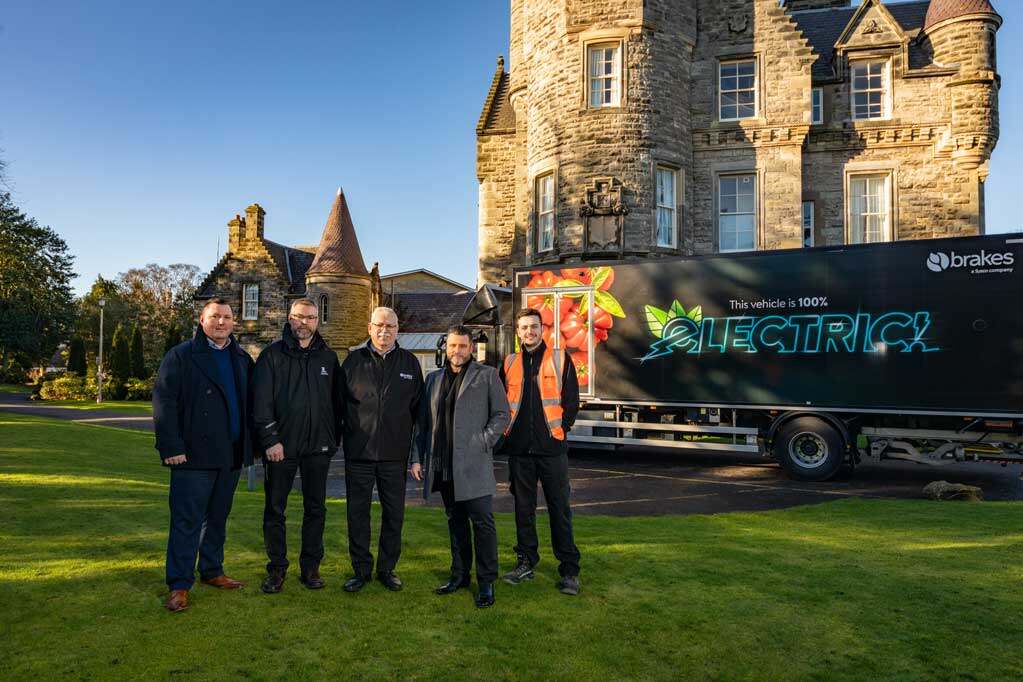St Andrews University is partnering with food service distributor Brakes, part of Sysco GB, to deliver food in a multi-temperate electric vehicle. As part of Sysco’s fleet decarbonisation programme, these are the first fully electric multi-temperature food deliveries in the higher education sector in Scotland.


Delivering to an average of thirteen different locations within the University five days a week, the 19-tonne Heavy Goods Vehicle (HGV), based at Brakes’ Dundee depot, covers around 300 miles a week powered with renewable electricity.
St Andrews aims to reduce its carbon footprint to net zero by 2035, and is working with suppliers like Sysco that are committed to science-based emissions reduction targets.
Chris Boyle, Brakes’ National Sales Manager says: “We are committed to pioneering a new era of foodservice deliveries across Great Britain, as part of our wide-reaching sustainability goals. Working with partners like St Andrews allows us to test these vehicles in different settings and locations, understand their potential and prepare to invest in decarbonising our fleet.”
The Electra truck, which started deliveries late last year, uses the latest electric vehicle technology with a range of around 280km and two temperature zones – frozen and chilled – allowing frozen, fresh, and ambient products to be delivered on a single vehicle.
Sysco has made considerable investment in exploring alternative technologies to decarbonise its fleet and to cut emissions, with a wider programme to explore the decarbonisation of its fleet both in the UK and globally.
Over six months, the carbon emission savings are projected to be over 9 tonnes of CO2e.
Speaking of the partnership, Steven McKay, Catering Manager in the University Residential Business Services unit, says “We are always looking for ways to reduce our carbon footprint in our procurement operations and this trial makes sense for both of us – not only can we cut scope 1 and 2 emissions, but we can really start to learn more about the infrastructure necessary to enable an extension of the trial.”






































